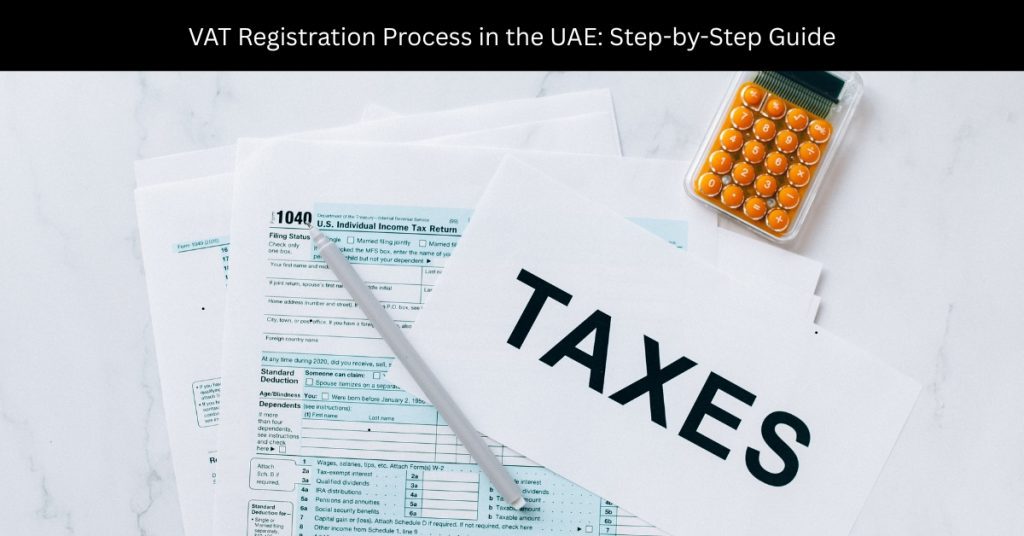Tax Planning Strategies for UAE Companies 2025
Optimize Your Tax Liabilities and Ensure Compliance in the Evolving UAE Tax Landscape
Tax planning continues to be a vital aspect of successful business management for companies operating in the United Arab Emirates (UAE). With significant tax reforms introduced in recent years—including the rollout of corporate tax in 2023 and key updates in 2025—UAE companies must adopt intelligent and proactive tax planning strategies to optimize their tax liabilities, ensure regulatory compliance, and strengthen financial resilience.
Need Expert Tax Planning Assistance?
Our team at One Desk Solution specializes in comprehensive tax planning, corporate tax registration, and compliance services tailored for UAE businesses. Let us help you optimize your tax strategy for 2025.
Table of Contents
- Understanding the UAE Tax Landscape in 2025
- Why Tax Planning is Critical for UAE Companies
- Key Tax Planning Strategies for 2025
- Optimize Entity Structure
- Leverage Free Zone Tax Incentives
- Utilize Holding Company Structures
- Maintain Diligent Documentation
- Align with Transfer Pricing Requirements
- Manage Corporate Tax Payments and Deadlines
- Engage Professional Tax Advisory
- Practical Tax Planning Techniques
- Tax Planning Strategy Overview
- How One Desk Solution Supports Tax Planning
- Frequently Asked Questions
- Related Articles
Understanding the UAE Tax Landscape in 2025
The UAE tax environment has undergone rapid transformation. Not long ago recognized as a zero-tax jurisdiction, the UAE introduced a federal corporate tax regime from June 2023, applying a 9% tax on business profits above AED 375,000, with a 0% rate below this threshold. As part of its alignment with global tax standards, the UAE also implemented the 15% Domestic Minimum Top-Up Tax (DMTT) in 2025, targeting large multinational enterprises with revenues exceeding EUR 750 million.
Alongside other taxes such as VAT at 5%, these legislative measures underscore the need for sophisticated corporate tax planning. Proper tax strategy not only ensures compliance and avoids penalties but also unlocks significant savings and operational advantages by leveraging the UAE's tax treaties, incentives, free zones, and sophisticated entity structures.
Why Tax Planning is Critical for UAE Companies in 2025
Reduce Tax Burden
Identifying and utilizing legal avenues to minimize tax liabilities, such as tax credits, deductions, or exemptions, enhances profitability.
Compliance and Risk Reduction
Proactively adhering to filing deadlines, documentation standards, and reporting requirements mitigates risks of fines, audits, and reputational damage.
Cash Flow Management
Efficient tax payments and deferrals improve cash flow forecasts and working capital.
Strategic Growth Enablement
Tax planning supports decisions on business expansion, mergers, acquisitions, and international operations.
Alignment with International Standards
Global tax shifts like OECD's Pillar Two require transparency and compliance, particularly for multinational firms.
Key Tax Planning Strategies for UAE Companies in 2025
1. Optimize Entity Structure: Mainland, Free Zone, Offshore
Selecting the right corporate structure forms the backbone of tax optimization. A mixed structure combining mainland and free zone companies can maximize benefits, but proper transfer pricing and documentation are crucial to satisfy tax authorities.
| Structure | Tax Advantages | Considerations |
|---|---|---|
| Mainland Company | Access to UAE domestic markets; subject to 9% corporate tax rates | Full compliance required; VAT obligations |
| Free Zone Company | Tax incentives including 0% tax in many free zones, customs duty exemptions | Must meet free zone compliance criteria; limited local market access |
| Offshore Company | Tax neutrality on foreign income; asset protection advantages | Restricted business activities locally; complex compliance with global tax rules |
2. Leverage Free Zone Tax Incentives
Many UAE free zones offer corporate tax holidays or incentives subject to compliance with evolving regulations.
Implementation Tips:
- Utilize exemptions where profit generation occurs entirely within the free zone.
- Ensure transactions between free zone and mainland entities abide by arm's length principles to avoid tax adjustments.
- Stay updated on changing free zone regulations and compliance requirements.
3. Utilize Holding Company Structures
Creating holding companies strategically placed in UAE free zones can bring significant tax advantages.
Benefits:
- Tax-efficient repatriation of dividends tax-free.
- Protection of intellectual property and valuable assets.
- Centralized management of subsidiaries to optimize consolidated tax liabilities.
4. Maintain Diligent Documentation and Record-Keeping
Accurate and comprehensive records on all transactions, expenses, and tax filings are necessary for compliance and optimization.
Key Advantages:
- Facilitate audits and reduce exposure to penalties.
- Support claims for input tax recovery and deductions.
- Employ digital bookkeeping systems such as those provided by One Desk Solution to ensure compliance and ease of reporting.
5. Align with Transfer Pricing Requirements
For companies with intercompany transactions, UAE mandates transfer pricing documentation aligned with OECD principles.
Essential Steps:
- Prepare transfer pricing policies.
- Conduct benchmarking studies.
- Document and disclose related party transactions thoroughly.
This helps mitigate tax base erosion and penalties.
6. Manage Corporate Tax Payments and Deadlines
Meeting Federal Tax Authority deadlines for corporate tax filings and payments is critical for avoiding penalties.
Best Practices:
- Set up reminders and compliance calendars.
- Consider installment payments or deferrals where allowed.
- Consult tax experts to optimize payment timings and limit penalties.
7. Engage Professional Tax Advisory and Compliance Services
Given the complexity of UAE tax laws, it is invaluable to work with specialist firms like One Desk Solution.
Services to Consider:
- Corporate tax registration and filings.
- VAT, bookkeeping, and audit services.
- Expert advice on strategic tax planning, compliance, and risk management.
- Tailored solutions for small, medium, and large enterprises.
Practical Tax Planning Techniques for UAE Companies
Tax Incentives Utilization
Benefit from available incentives including:
- R&D tax credits
- Accelerated depreciation
- Sector-specific incentives (e.g., energy, technology)
- Free zone tax holiday extensions
Expense Management and Deductibility
Properly classify and document deductible expenses to reduce taxable income while maintaining compliance.
Timing Income and Expenses
Strategic timing of revenue recognition and expense payments can shift tax liabilities to optimize cash flow.
International Tax Planning
For multinational corporations:
- Apply UAE's extensive double tax treaty network
- Use transfer pricing adjustments prudently
- Plan cross-border financing and dividend repatriation effectively
Tax Planning Strategy Overview for UAE Companies 2025
| Strategy | Description | Benefits | Implementation Tip |
|---|---|---|---|
| Entity Structure | Choose between mainland, free zone, offshore | Minimize tax, access markets | Evaluate operational vs tax needs |
| Free Zone Incentives | Leverage tax holidays and customs exemptions | Reduce or defer tax liabilities | Stay updated on free zone rules |
| Holding Company Setup | Centralize control of subsidiaries | Efficient dividend flow, asset protection | Ensure compliance with substance rules |
| Documentation & Records | Maintain thorough records | Ensure audit readiness, maximize deductions | Use digital bookkeeping solutions |
| Transfer Pricing | Document intercompany pricing | Avoid double taxation, penalties | Prepare and maintain documentation |
| Timely Payments | Meet FTA deadlines and utilize deferrals | Avoid fines, optimize cash flow | Use tax software and expert guidance |
| Professional Advisory | Engage tax consultants for planning & compliance | Receive tailored, compliant solutions | Collaborate with trusted firms like One Desk Solution |
How One Desk Solution Supports UAE Companies with Tax Planning
At One Desk Solution, based in Dubai, we specialize in comprehensive accounting, VAT, corporate tax, and audit services tailored to UAE companies' evolving needs. Our expert team couples international experience with in-depth UAE tax knowledge to deliver customized solutions.
Customized Tax Planning
Strategies aligned with your specific business goals and operational structure.
VAT Registration & Compliance
Complete VAT services from registration to filing and compliance assurance.
Bookkeeping & Financial Reports
Ongoing bookkeeping services ensuring transparency and accuracy.
Internal Audit Services
Identify risks and improve controls through comprehensive internal audits.
Corporate Tax Registration & Filing
Accurate corporate tax registration and timely filing to avoid penalties.
Free Zone Advisory
Expert guidance on free zone benefits, compliance, and optimization.
Our commitment to empowering business growth through financial clarity and regulatory compliance makes One Desk Solution the preferred partner for UAE companies seeking smart tax and accounting solutions.
Frequently Asked Questions About UAE Tax Planning
Ready to Optimize Your Tax Strategy for 2025?
Don't leave your tax planning to chance. Contact One Desk Solution today for expert tax advisory and compliance services tailored to your UAE business needs.
Related Articles
Explore more resources from One Desk Solution:



